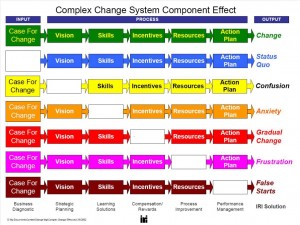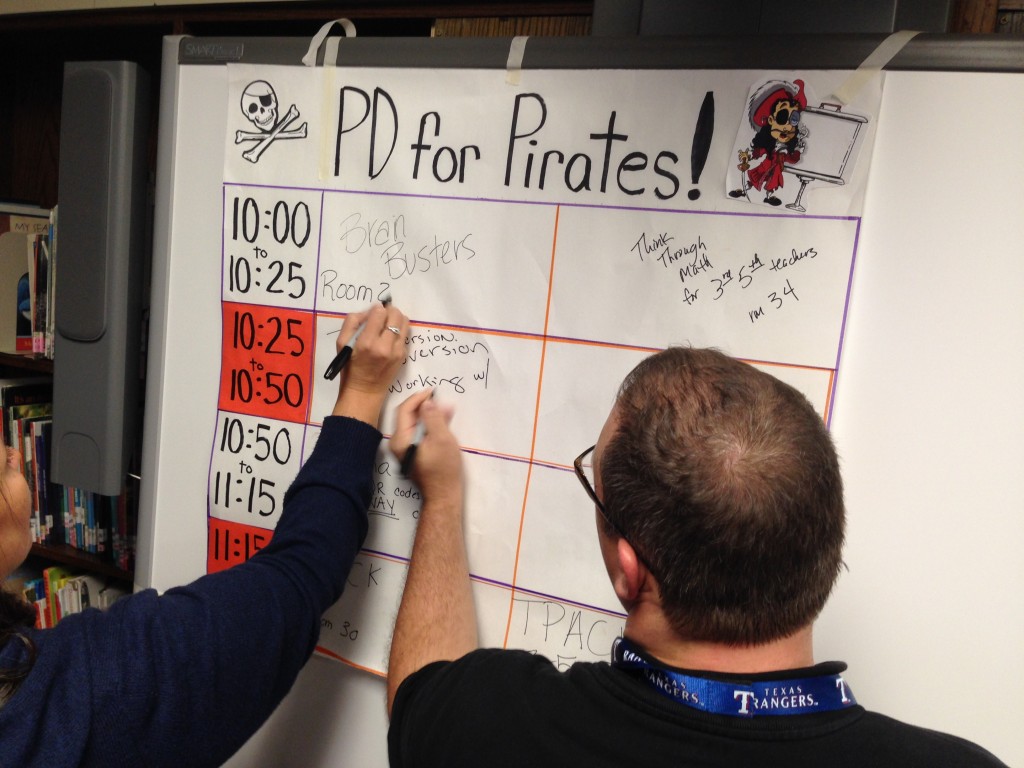In this hangout instructional leaders Jason Markey, Melissa Emler, Tony Sinanis, & Zach Snow discuss the importance of student voice and how to harness the power that passionate students are willing to share…if we listen.

We’ve been discussing the “change matrix” within a leadership group in my district.

What’s in it for me? When it comes to change, this may be one of the most frequently used phrases, both vocalized and internalized. Too many times we miss out on great opportunities because we have the wrong mindset. At what point in a teacher’s career does the focus shift from doing what is best for students to, “let’s do what’s best for me.” Our systems are built around the convenience of the adults and not necessarily for the benefit of the students.
I know that some of you may disagree, but where’s your evidence?
1). Master schedule is based on adult’s preference.
2). Teachers threaten to quit or transfer if they do not get the classroom or conference that they want.
3.) Knowing that some teachers lessons aren’t up to par, but not wanting to rock the status quo.
4.) Looking the other way at worksheet driven classrooms because “the test scores are fine.”
Educators need to be redirected back to the purpose of our profession – doing what’s best for students’ success. Our current practices may give us gradual change, but not the change you need to truly make a difference.
We must provide incentives, which doesn’t always mean money. Knowing how important the students are to both their own success and to ours, what can we do, incentive-wise, to get teachers to focus on what’s best for students? How do you steer the conversations back to what’s best for students? Are you a students’ principal?
(Thanks to Dr. Gerald Hudson for the starting point here, :))
Amber

 When planning for your staff development or professional development or growth opportunity…do you differentiate for your teachers?
When planning for your staff development or professional development or growth opportunity…do you differentiate for your teachers?
I know, I know…with everything else on your plate, now you’re supposed to add that to your list of to do’s? The answer is yes, if you want them to be completely dialed in and connected. In the same way that we expect our teachers to meet the needs of the learners in their class, we as administrators need to recognize the different levels of abilities and experiences on our staff. A differentiated approach to PD is needed to meet the diversity of teacher needs. PD should always be an evolving process of reflection and growth, and the way to accomplish that, is to get creative with how it’s planned and delivered.
Meeting teachers where they are isn’t nearly as complicated as it sounds. Depending on what you are discussing, teachers can be grouped according to familiarity or confidence in the topic. This can be discovered through a needs assessment or of their own volition. Allowing teachers to feel invested and providing a choice in what they are learning will almost certainly pay dividends in the long run. This will also reinforce your expectations within the classroom.
Grouping teachers is one way of differentiating. What else can you do?
- Give options in what your teachers are discussing, #edcamp style. I’ve even “prepped” teachers with a couple of topics that I knew that I wanted to see covered, but left most of the board blank, for their input.
- Allow conversations, not just “sit & get” sessions.
- Flip your meetings, to make the discussions more valid & transparent. Allow teacher voice!
- Let your groups of ability leveled learners be led by members of your own staff. Call on the experience in your building!
- Create a bucket list of activities you’d like to see in classrooms.

Supporting teachers begins with knowing that we should meet their individual needs in their own learning and growth. We no longer can be ok with the status quo, or a one size fits all mentality when it comes to PD. As the leader, it is up to you ensure that each educator has what they need in order to be the very best that they can be in their classroom. In the same way that students want to be interested, invested, and engaged, our teachers do too! Make your professional development an opportunity to be a role model and allow for a “different” development, a differentiation based one!
I challenge you this week to rethink your professional development. Share one way you plan on perking up and differentiating your PD!
I hope you have a great week and are warm where ever you are!
Amber




